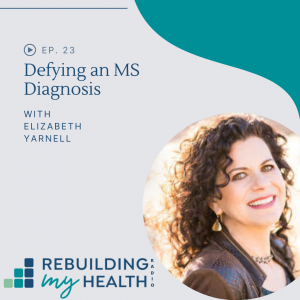People ask me all the time if food sensitivity testing is reliable. My answer is always: “Depends on which test you use.”
Food sensitivity/food allergy testing that looks for IgE or IgG antibodies can show us whether or not someone has been exposed to a food and created an antibody to it, but not necessarily if the person becomes symptomatic when exposed.
In other words, antibodies can tell us there is a gun in the room, but not whether it has been fired. The existence of these antibodies are not reliable indicators of symptoms.
The ALCAT test, invented in the early 1980s by a team led by Dr. Mark Pasula, was the first test to look at the release of inflammatory markers known as mediators rather than the slippery antibodies. Over time, Dr. Pasula wasn’t satisfied with the way the ALCAT measured the mediator release from the blood. This led to a bitter difference of opinion within ALCAT and Dr. Pasoula split to apply what he had figured out to making a more accurate and reliable test.
The state-of-the-art Mediator Release Test, or MRT, is like ALCAT 2.0.
Dr. Allen Bonilla, D.C., in Los Angeles, recently decided to see once and for all which test, the ALCAT or the MRT, would provide more accurate results with which to treat his suffering patients. In this video, he takes blood samples for three ALCAT tests and three MRT tests on the same afternoon and submitted them to the labs.
Holding the results side-by-side, it’s plain to see that the ALCAT results changed radically from sample to sample, while the MRT results were practically identical for the three submissions.
Thank you, Dr. Bonilla, for this enlightening experiment, and for sharing it on video. (Be sure to continue reading below the video for more…)
http://www.youtube.com/watch?v=WXJpGmyrxTU
I’ve always found it hard to trust ALCAT results when working with clients, and now I can see exactly how unreliable this test is. It’s unfortunate, because ALCAT employs a sales force that convinces allergists and other doctors to order this test for their patients. When following the ALCAT results does not eliminate their symptoms, they dismiss the idea the dietary therapy could help relieve their condition.
Oxford Laboratories, on the other hand, the company Dr. Pasula founded to build the MRT, realizes that doctors do not have the time or expertise in nutrition to correctly interpret the test results and implement a therapeutic diet, so they focused their efforts on training Registered Dieticians (RDs) and other practitioners knowledgeable in nutrition and food.
Which makes the MRT a choice to go with a professional who can take the time to work with you to regain your health.
My food sensitivities clinic is open to clients nationwide. My clients receive not only the reliable results from the MRT, but also extensive analysis and customized anti-inflammatory diet plans complete with breakfast, lunch, dinner, and snack ideas, recipes, and safe brands and shopping advice.





